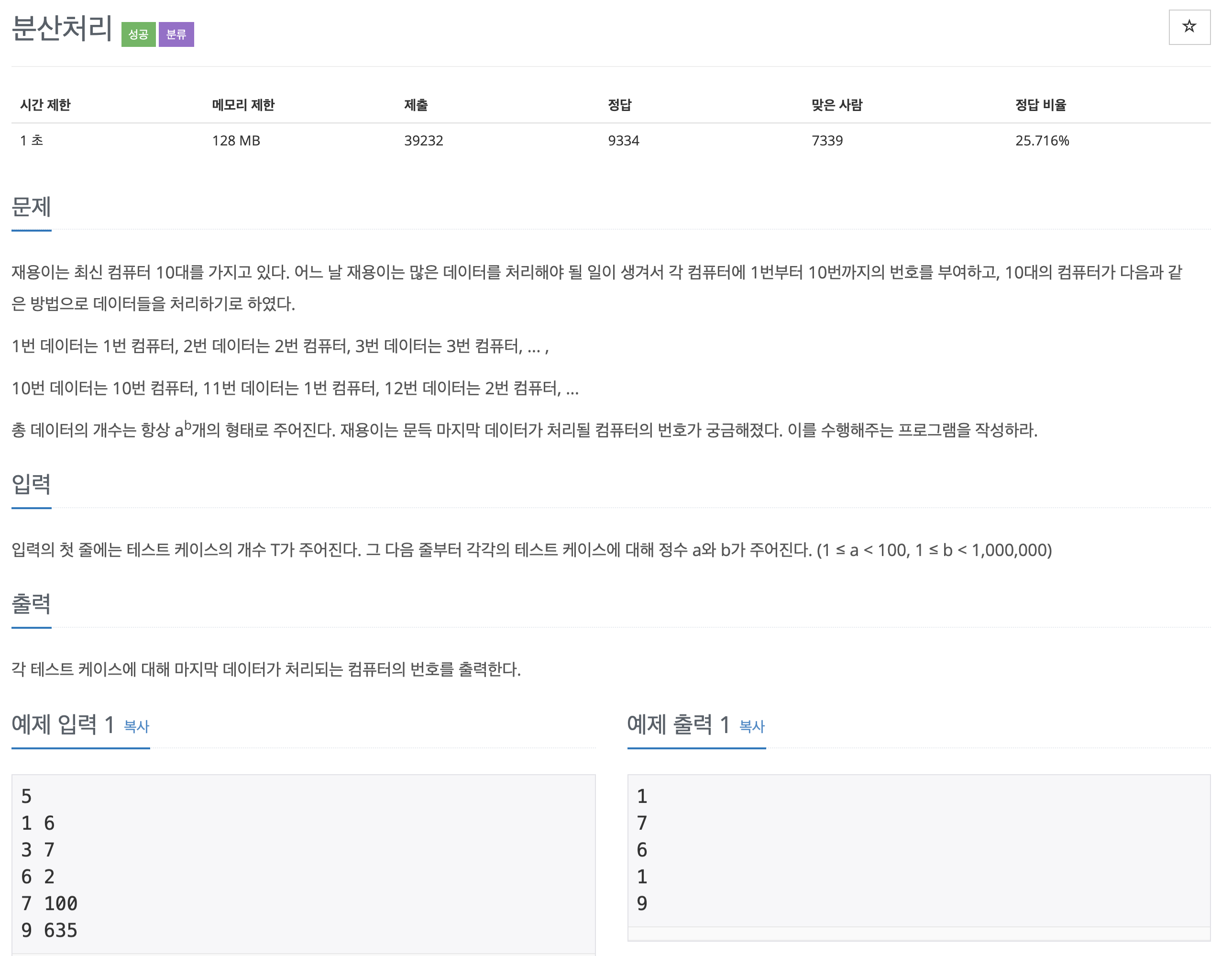👩🏻💻 문제

👩🏻💻 정답 코드
import java.util.*;
public class Main {
public static void main(String[] args) {
Scanner s = new Scanner(System.in);
int t = s.nextInt();
int a, b, r;
for (int i=0; i<t; i++) {
a = s.nextInt();
b = s.nextInt();
r = 1;
for (int j=0; j<b; j++){
r=a*r%10;
}
if (r==0) r=10;
System.out.println(r);
}
}
}
처음에 바로 Math.pow(a,b);를 썼는데 마지막 테스트 케이스에서 범위를 초과했는지 NaN이 출력돼서 a를 곱할 때마다 10으로 나눠서 r을 구하는 코드를 짰다.
👩🏻💻 개선 코드
import java.util.*;
public class Main {
public static void main(String[] args) {
Scanner s = new Scanner(System.in);
int t = s.nextInt();
int a, b, c, result;
for (int i=0; i<t; i++) {
a = s.nextInt();
b = s.nextInt();
c = 0;
result = 1;
if (a%10==0||a%10==1||a%10==5||a%10==6) {
result = a%10;
}
else if (a%10==4||a%10==9){
c = b%2;
if (c==0) c=2;
}
else {
c = b%4;
if (c==0) c=4;
}
for (int j=0; j<c; j++) result = (result*a)%10;
if (result==0) result=10;
System.out.println(result);
}
}
}
 a%10의 값에 따라 결과값이 반복되는 주기가 1, 2, 4인 수로 나뉜다.
a%10의 값에 따라 결과값이 반복되는 주기가 1, 2, 4인 수로 나뉜다.
따라서 a%10이 0, 1, 5, 6일 때의 조건, 4, 9일 때의 조건, 나머지 경우일 때의 조건을 추가해 줬다. b를 반복주기로 나눠서 c에 대입했고, result 값을 구하는 for문은 최대 4번까지 돌아감.

반복이 줄어서 시간이 1/4 정도로 확 줄은 걸 확인할 수 있다!
👩🏻💻 Remember
반복문을 줄이자😣

